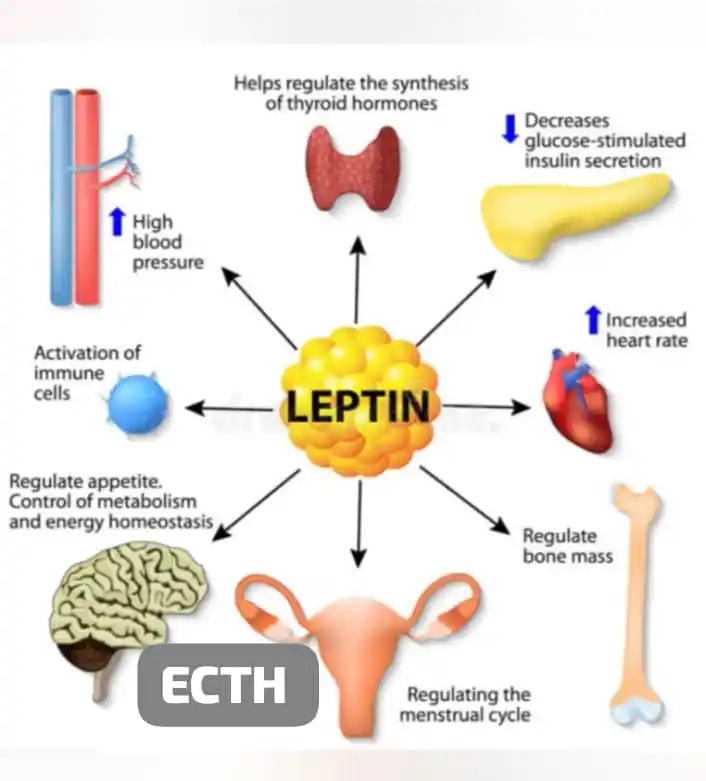
Triple T Alternative Medicine
May 14, 2025 at 09:12 AM
THE ARTICLE 2025 00225: DR B L DICKSON, NIGERIA.
Theme:
"Leptin Resistance Management In Integrative Health Relating Fat Belly"
The Preambles:
Definition of term; Leptin is a hormone produced by fat cells that plays a crucial role in energy balance and metabolism. It helps regulate:
Appetite Leptin signals the brain when you've had enough to eat, reducing hunger.
Metabolism: Leptin influences energy expenditure and storage.
*The Leptin's Functions*
1. *Energy homeostasis*: Leptin helps maintain a balance between energy intake and expenditure.
2. *Weight regulation*: Leptin levels typically decrease with weight loss and increase with weight gain.
*The Leptin Imbalance Tips*
1. *Leptin resistance*: When the brain becomes less responsive to leptin, leading to increased hunger and weight gain.
2. *Leptin deficiency*: Rare genetic conditions can lead to leptin deficiency, causing severe obesity.
*Some Factors Influencing Leptin*
1. *Diet*: High-calorie diets can lead to leptin resistance.
2. *Exercise*: Regular physical activity can improve leptin sensitivity.
3. *Sleep*: Poor sleep can disrupt leptin levels.
4. *Stress*: Chronic stress can affect leptin production.
*How To Maintain Healthy Leptin Levels*
1. *Balanced diet*: Focus on whole, nutrient-dense foods.
2. *Regular exercise*: Engage in physical activity.
3. *Adequate sleep*: Prioritize good sleep hygiene.
4. *Stress management*: Engage in stress-reducing activities.
Leptin resistance occurs when the brain fails to recognize leptin's signaling, leading to an imbalance in energy homeostasis. This can cause a range of health issues, including:
- *Increased Hunger and Food Intake*: Leptin resistance disrupts the body's satiety system, making you feel hungry even when you have enough fat stores.
- *Weight Gain and Obesity*: As the brain thinks the body is starving, it triggers intense hunger and decreases metabolism, leading to weight gain and obesity.
- *Metabolic Consequences*: Leptin resistance is associated with metabolic syndrome, type 2 diabetes, and non-alcoholic fatty liver disease.
- *Fatigue*: Elevated leptin levels in leptin resistance are linked to fatigue.
- *Increased Reactivity of Mast Cells*: This may contribute to allergic reactions and histamine intolerance.
*Causes and Risk Factors*
- *Chronic Inflammation*: Ongoing inflammation can dull leptin receptors, making them less responsive to leptin signals.
- *Chronically High Leptin Levels*: Consistently elevated leptin levels can lead to leptin resistance.
- *Poor Diet*: Consuming high amounts of processed sugars, saturated fats, and refined carbohydrates can contribute to leptin resistance.
- *Lack of Sleep*: Poor sleep habits and altered circadian rhythms can increase the risk of leptin resistance.
- *Chronic Stress*: Unmanaged stress can contribute to metabolic dysfunction and leptin resistance.
*Integrative Remedies In Managing Leptin Resistance:*
- *Balanced Diet*: Focus on whole, nutrient-dense foods like vegetables, fruits, and whole grains.
- *Regular Exercise*: Consistent physical activity can help improve leptin sensitivity.
- *Stress Management*: Engage in stress-reducing activities like meditation or yoga.
- *Adequate Sleep*: Prioritize good sleep hygiene and aim for 7-9 hours of sleep per night.
- *Supplements and Herbs*: Certain herbs like cinnamon and gymnema sylvestre may help regulate appetite and improve leptin sensitivity.
My Reminder:
"If nature didn't make it, don't take it - go with nature"

❤️
1